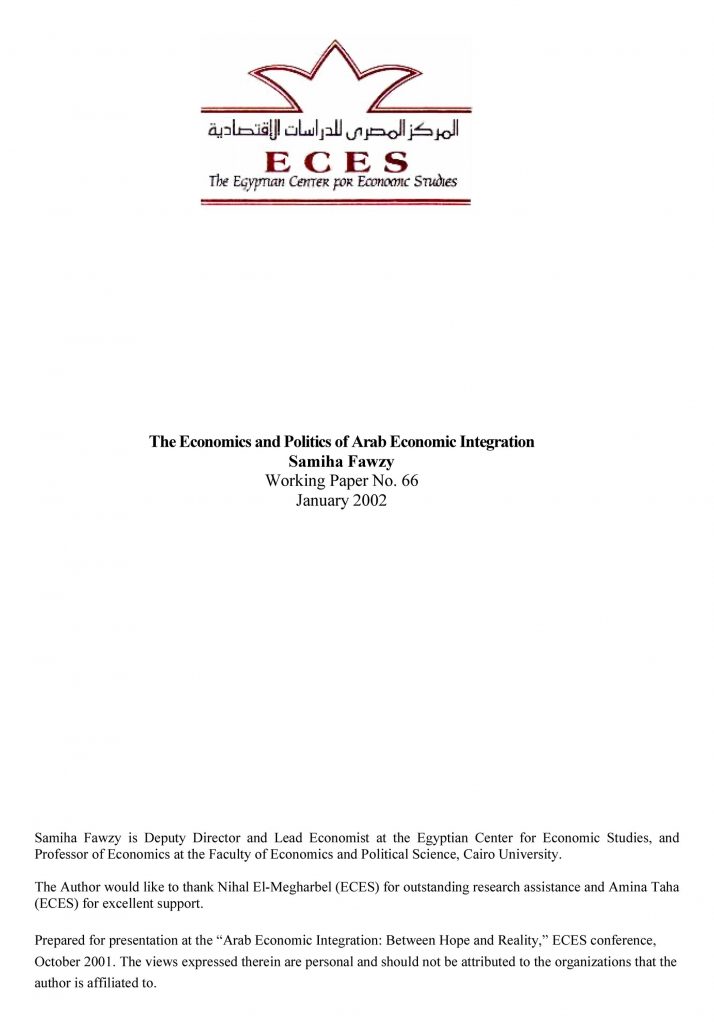Abstract:
Despite repeated attempts at regional integration for half a century, Arab economic relations remain limited and compare unfavorably with other regional blocks. This paper attempts to identify the objective reasons for the slow progress on Arab integration in the past, with a view to offering suggestions for a better future.
It shows that a lack of both economic and political incentives for integration is responsible for the slow progress of Arab integration to date. More specifically, it identifies five main reasons for these limited results: low degree of complementarity among Arab countries; low level of openness; weak private sector role, unwillingness of political leaders to integrate; shortage of commitment institutions, in particular the absence of mechanisms to compensate the losers; and finally the lack of consensus on one state or more to act as a regional leader or leaders.
Looking forward, the paper argues that the future of Arab economic integration seems promising. This view is based on the more favorable internal and external economic circumstances prevailing currently, and on some positive political changes as well. It also shows that without simultaneous efforts to address the still existing barriers and new challenges, Arab integration would remain a hope rather than a reality.

The Economics and Politics of Arab Economic Integration – WP66 – January 2002
08-01-2002
Author(s): Samiha Fawzy
Publication Number: ECES-WP66-E
